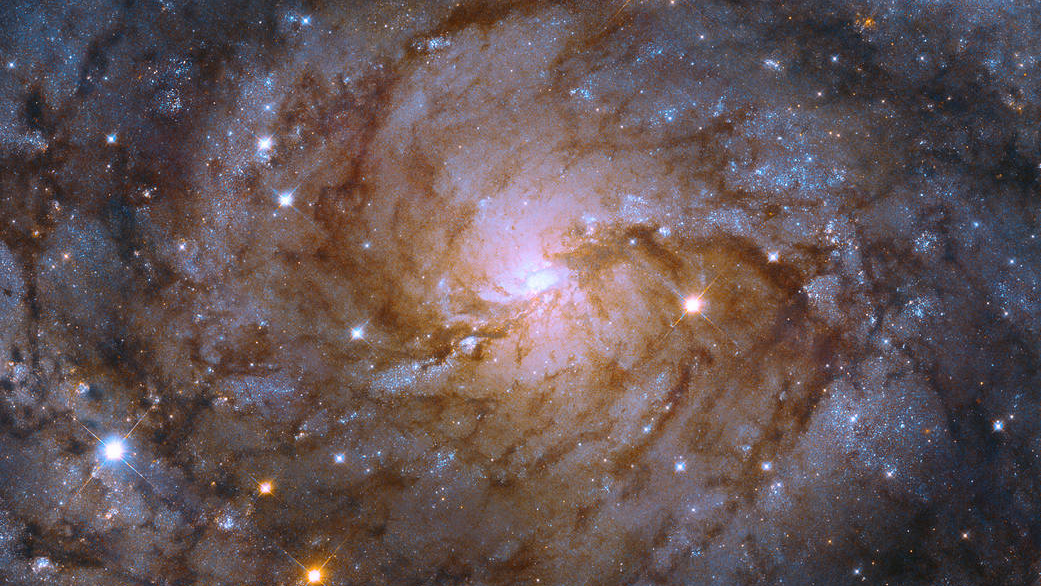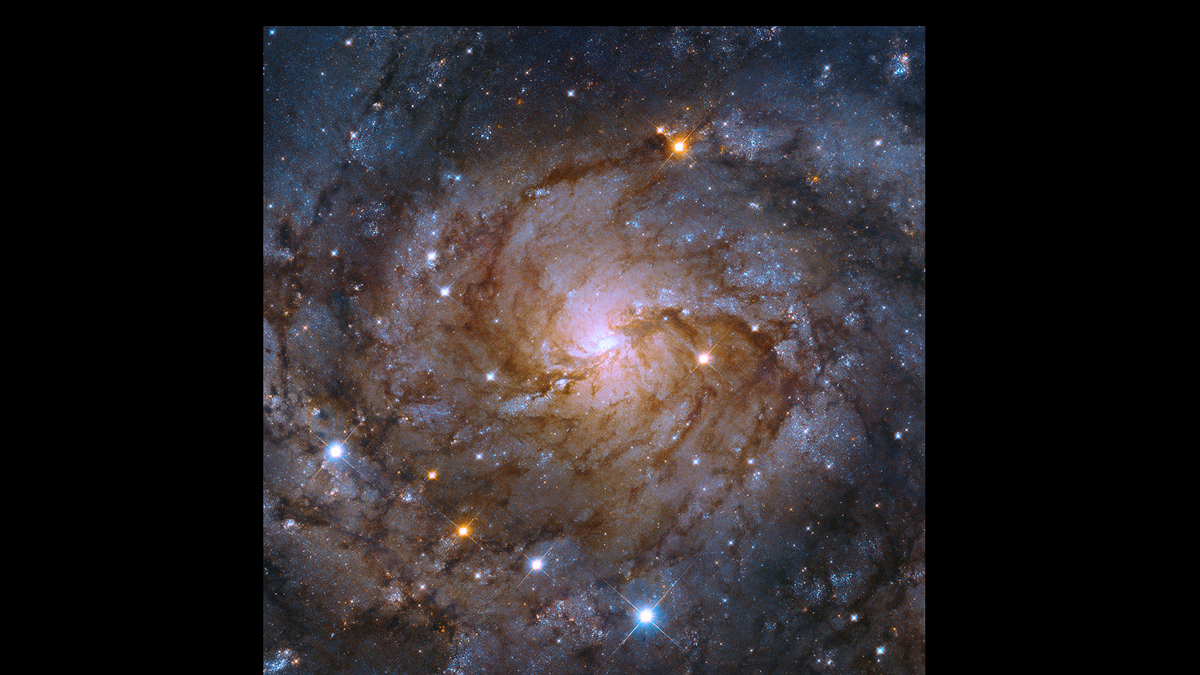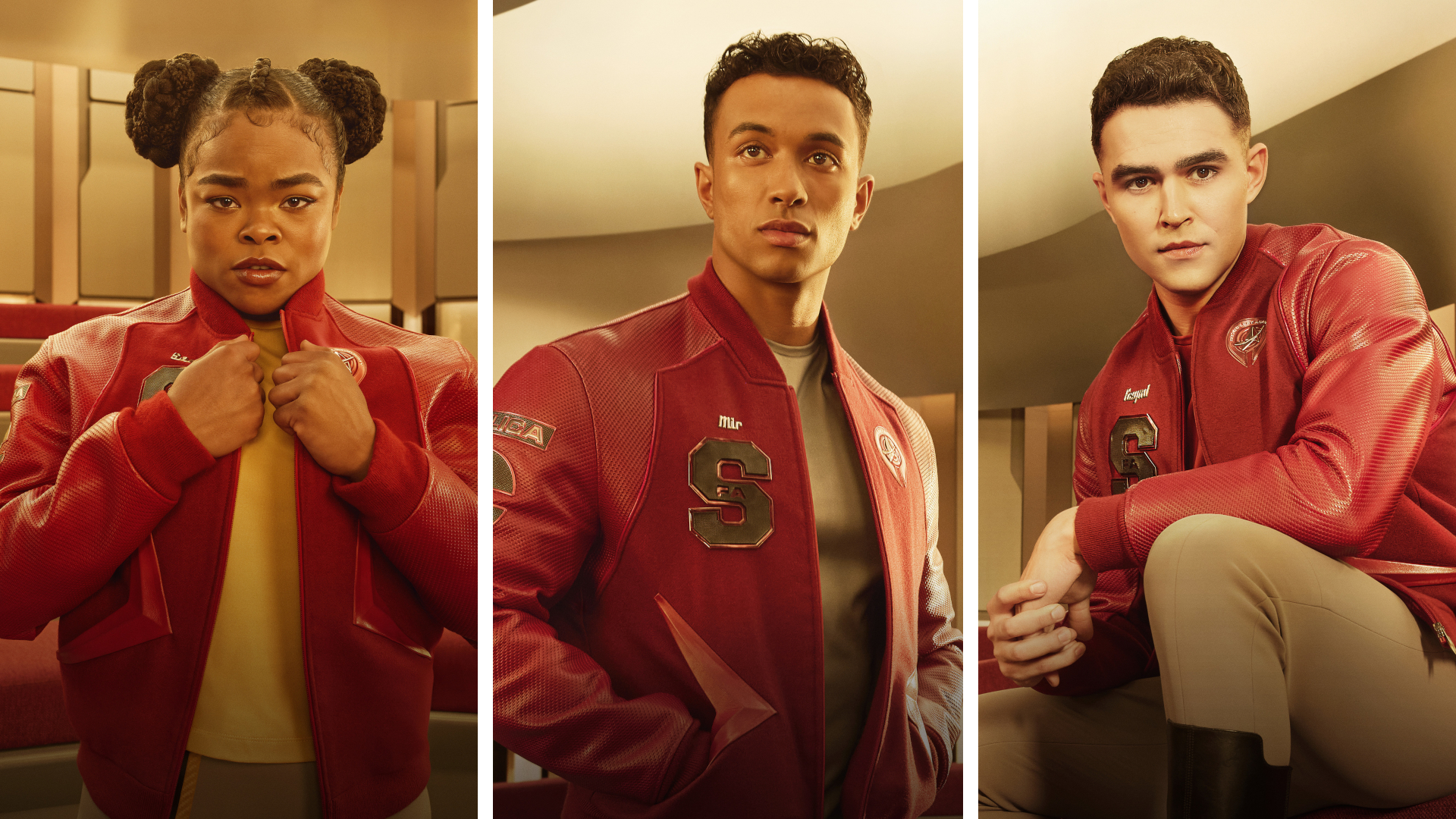Hubble telescope spots stunning 'Hidden Galaxy' hiding behind our own Milky Way
If it weren't for all the interstellar matter in the way, IC 342 would be one of the brightest galaxies in the sky.
Behold the "Hidden Galaxy" coming into view.
This glorious Hubble Space Telescope image showcases spiral galaxy IC 342, also known as Caldwell 5. No matter what you call this galaxy, scientists have had some difficulty observing it due to obstacles in the way, earning it its "hidden" nickname, according to NASA.
"It appears near the equator of the Milky Way's pearly disk, which is crowded with thick cosmic gas, dark dust, and glowing stars that all obscure our view," NASA wrote in a May 11 statement.
Related: The best Hubble Space Telescope images of all time!
Hubble can peer through the debris, to an extent, as the telescope does have infrared capabilities. Infrared light is less scattered by dust and allows a clearer view of the galaxy in behind the interstellar matter.
"This sparkling, face-on view of the center of the galaxy displays intertwined tendrils of dust in spectacular arms that wrap around a brilliant core of hot gas and stars," NASA wrote of the picture.
"This core is a specific type of region called an H II nucleus — an area of atomic hydrogen that has become ionized. Such regions are energetic birthplaces of stars where thousands of stars can form over a couple million years."
Breaking space news, the latest updates on rocket launches, skywatching events and more!
The blue stars ionize or energize the hydrogen surrounding their birthplaces due to emitting ultraviolet light, NASA said. The galaxy would be one of the brightest galaxies in our sky if there was not so much dust in the way.
IC 342 is also relatively close in galactic terms, only 11 million light-years from Earth. It's about half the diameter of our own Milky Way (50,000 light-years across), making it relatively large, too.
Hubble has been in space for a generation and has photographed this galaxy several times before. You can also spot its imaging of IC 342 in 2017 and 2010.
Follow Elizabeth Howell on Twitter @howellspace. Follow us on Twitter @Spacedotcom or Facebook.

Elizabeth Howell (she/her), Ph.D., was a staff writer in the spaceflight channel between 2022 and 2024 specializing in Canadian space news. She was contributing writer for Space.com for 10 years from 2012 to 2024. Elizabeth's reporting includes multiple exclusives with the White House, leading world coverage about a lost-and-found space tomato on the International Space Station, witnessing five human spaceflight launches on two continents, flying parabolic, working inside a spacesuit, and participating in a simulated Mars mission. Her latest book, "Why Am I Taller?" (ECW Press, 2022) is co-written with astronaut Dave Williams.


